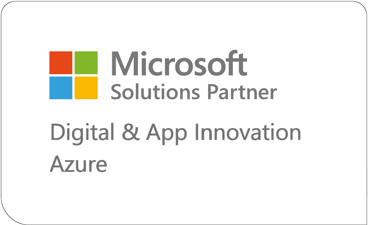The Future of Digital Marketing: What CMOs Need to Know Now
Lead the shift: Harness AI personalisation, predictive insights, and data storytelling with Power BI to deepen loyalty, scale impact, and drive revenue.

Digital marketing has been evolving right before our eyes, and in many ways has changed the way we interact with our customers. While many organisations are still catching up with basic digital strategies, the smartest CMOs are already preparing for what's next: AI-powered personalisation, predictive customer insights, and data storytelling that actually drives decisions.
The real question is, “Can you lead this front for your own organisation well?”
How AI Reshapes Marketing As We Speak
If you’re still not convinced that AI hasn’t been in marketing in recent years, look around. It’s already changing things and fast. AI allows you to forge closer relationships with customers while scaling your marketing efforts beyond what any human team could achieve manually in a fraction of the time.
The applications it offers are immediately practical. AI can analyse every customer interaction, so it can deliver the optimal response for your customers. It can deliver the best tailored offers based on their previous visits, then predict their next steps. Your existing business intelligence tools get an upgrade, and let you focus more on other metrics you might be neglecting.
But don’t think it will replace your best marketers. Human creativity is still the secret sauce. We’re just giving them the best tools available so they can perform at their best, and reshape the whole marketing landscape the way they want to.
The Path to Personalisation
Even if you have the best AI tool around, it won’t matter if you can’t bring personalisation into it. The good news is it’s integrated, and it’s all across every touchpoint. The key is to combine every customer experience, from web, mobile, email, and apps, into a database that knows each customer and their digital footprints.
And the result speaks for itself. Companies like Vista saw a 121% jump in homepage click-through rates when they added personalised dashboard content in their header area for returning users. Similarly, Flight Centre’s email headers, personalised for region or user persona, drove up to 388.72% more site traffic from those emails.
And to truly succeed, an organisation needs to align its digital goals with its own organisational goals. We’re talking about customers taking actions that increase engagement, like registering for newsletters or downloading content. Each specific action should clearly link to how customers can demonstrate loyalty and ultimately drive revenue.
The key is prioritising customer segments for quick wins. You focus on those with the highest potential who would bring you to your goals faster.
Use Data Storytelling as Your Personal Edge
Apart from personalisation and AI, there’s another tool each organisation can utilise: Data Storytelling.
This is where data gets transformed into interactive content that people would want to consume. In fact, it gets shared twice as often as passive content. It’s a tool that offers a path to increase brand awareness while also providing transparency that builds trust. Customers want to fact-check your claims, and data storytelling gives them the information behind your narrative.
This approach engages both internal and external audiences. Your team makes better decisions based on clear evidence, while customers connect with your brand through content that respects their intelligence and provides genuine value.
The Tech Behind the Movement
To fully unleash the potential of Data Storytelling, Microsoft Power BI swoops in as the go-to platform. This is what marketers use to turn their raw data into compelling visuals that truly resonate with their audience.
CMOs can clearly see what’s working and what’s not through its interactive dashboards. They won’t have to sift through hundreds of spreadsheets anymore before making evidence-based decisions, now that a better alternative is at arm’s reach.
But Power BI’s true strength lies in its capability to transform the usual analytics into stories that compel any intended audience. Marketers are spoiled for choice when it comes to visuals to choose from when they want to connect with stakeholders and customers. And to top it all off, it can seamlessly integrate with marketing and CRM platforms, so the visuals get updated every time new data comes in.
The Bottom Line
Digital marketing has already shifted dramatically, and at the pace it’s going, it’s easy to be swept away. As long as your organisation’s grasp on AI, personalisation, and data storytelling is firm, then you have the best chance to guide the change to a path your organisation will thrive in.
Is your organisation ready to take the helm in changing digital marketing?
We can help you find the best tools to guide you forward.



